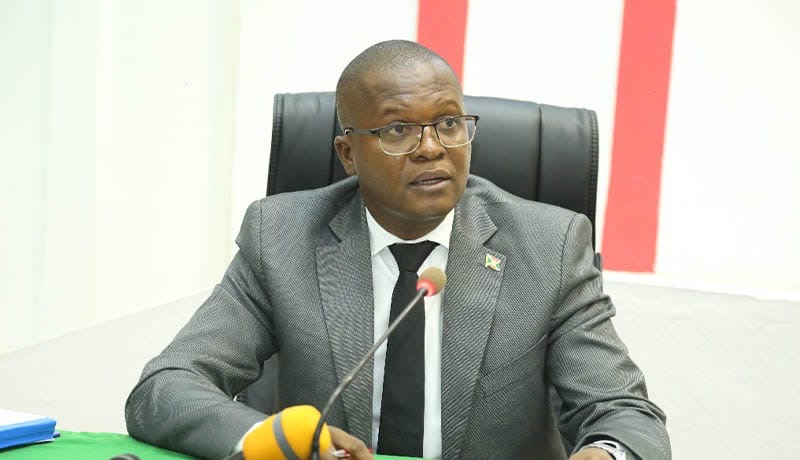Bujumbura : the finance minister closes the door to private media

Last Thursday, in Bujumbura, the commercial city where all United Nations agencies and the central administration are concentrated, six local radio stations – Isanganiro, Bonesha FM, Rema FM, Shima FM, Agaseke FM, and Radio Remesha Amahoro – came together to debate a crucial issue : the requirement for all Burundians aged 18 and over who do not have mutual insurance to have a health insurance card in order to access healthcare.
As part of this synergy, journalists sought clarification from Finance N
Minister Nestor Ntahontuye regarding the introduction of this health insurance card (CAM), provided for in the 2024-2025 budget law.
The Minister of Finance categorically rejected the proposal. « I do not provide information to private media, especially when it concerns official information, » he declared.
INFO SOS Médias Burundi
This statement immediately provoked outrage in the journalistic community. A radio director, shocked by this attitude, denounced it as « a disgrace in a country that calls itself democratic. » He also noted that the President of the Republic himself promoted the slogan « Never without the media. »
A bad sign for government communication
Several journalists and analysts consider this stance by Minister Ntahontuye to be worrying. « If a minister dares to use such language, what should we expect from other officials? » wondered a media professional.
The frustration is all the greater given that press officials have repeatedly alerted the authorities to the difficulties accessing information. They denounce a persistent tendency of public authorities to withhold essential information or mistreat journalists seeking comments.
Media appeals to regulatory authorities
Faced with this situation, media stakeholders are calling on the National Communication Council (CNC) and the Ministry of Communication to intervene quickly. They are demanding that public authorities be reminded to respect their duty of transparency and communication, which is essential to democracy and access to information for all Burundian citizens.
Burundi, ranked among the most repressive countries for press freedom, continues to face significant challenges in this area. In May 2015, numerous radio stations were destroyed, and around a hundred journalists were forced into exile.
In the annual press freedom index compiled by RSF (Reporters Without Borders), the small East African nation ranked 108th out of 180 countries in 2024.
——-
Nestor Ntahontuye, the Burundian finance minister who shut the door to private media, DR

